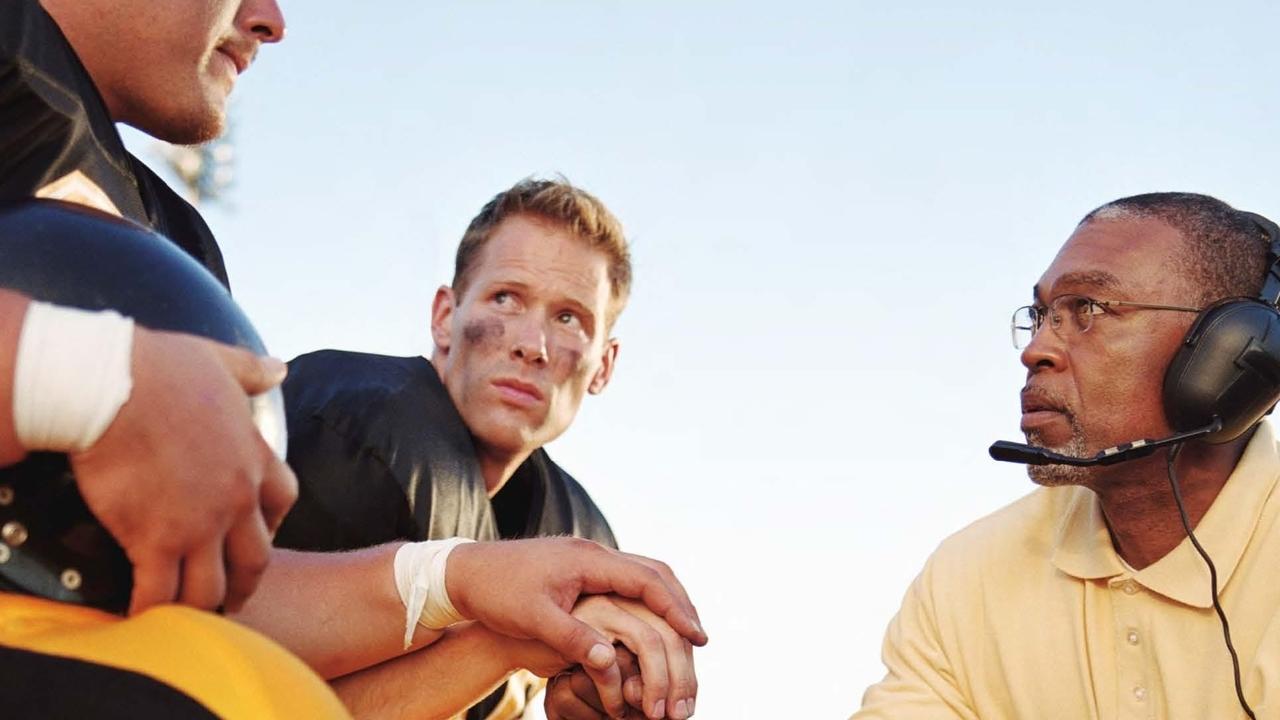Athlete tips: 13 Steps to Being Coachable
Jan 21, 2020
- Identify what makes an athlete coachable or uncoachable
- TOP 5 benefits for being coachable.
- Free download of 13 Steps to Being Coachable
Download 13 STEPS TO BEING COACHABLE
As you’ve probably noticed already, sometimes your athletes need to hear a different voice than yours. Share our coachability checklist with your team to help them hold one another accountable, and develop a growth mindset.
Sports are filled with mental challenges, and many of these challenges are self-imposed. The coach-player dynamic can be one of the most difficult challenges to navigate.
Receiving criticism in any area of life is tough, whether it's coming from teachers, bosses, family, friends, or coaches. But being able to graciously receive advice and mentorship is a necessary part of growth.
Before I dive into becoming a coachable athlete, allow me to define it.
Characteristics of a Coachable Athlete
Before I wrote this blog, I asked a number of coaches what characteristics they believe make an athlete coachable. Here are a few things they said to me.
Coachability means being grateful that someone cares enough about you to push you. It means being vulnerable enough to know you're not perfect and you need their expertise. It means learning to put your ego aside to be open to honest feedback and being willing to make changes.
To get the full list of all 13 characteristics, download 13 Steps to Being Coachable
Becoming a coachable athlete is up to the athlete, not the coach.
Characteristics of an Uncoachable Athlete:
When I discussed the characteristics of coachable athletes with a number of coaches, I also talked to them about what makes an athlete UNcoachable. Here's what they said:
Characteristics of uncoachable athletes are easy to spot. It comes down to an overall feeling of disrespect and lack of gratitude. Being uncoachable often looks like rolling your eyes, taking things personally, or reading into things. Seeming ungrateful to coaches and players who are trying to help, and believing everything's about you.
As a former collegiate athlete, I’m guilty of all of the above. While I tried my best to be coachable and to not take things personally, my attitude was (and sometimes still is) something that needed constant attention and required constant mental work.
Becoming more coachable isn’t something that can be achieved with more drills, more reps, or multiple coach-player conferences. A player’s coachability is a mentality that requires diligence and attention from the athlete. In other words: coachability is up to the athlete, not the coach.
Uncoachable players do not help themselves or their teams by taking such a hard-headed approach to the game." - Mark Miller, writer, BleacherReport.com in The Most Uncoachable Players in MLB History
The surprising part is, most of the time, athletes don’t even know they’re uncoachable! It can be a shock to find out that it isn’t the coach, it isn’t the team, it isn’t the sport, isn’t the equipment… It’s actually them. Before an athlete can become more coachable, they first need to understand the benefits of having a coachable mentality.
Top 5 Benefits of Being Coachable
- More playing time (and less drill or bench time).
- Greater cohesion with the team and/or coaches.
- Accelerated learning.
- Deeper and more fulfilling relationships with your coaches.
- Greater internal calm: Accepting criticism for what it is (INFORMATION) instead of what it isn’t (AN ATTACK).
Taking Action
Coaches, download and print a few copies of 13 Steps to Being Coachable and bring it to your team. Pair athletes up in small groups and have them discuss their thoughts on the list and even add their own. Circle up, and discuss each characteristic, one at a time, and ask athletes to share what they discussed in their small groups.
Here are a few discussion questions you can use to get the conversation started:
- What are some times you've found it really hard to keep yourself accountable to this list?
- Have you felt frustration when mentoring other players on the team? (Or other students, a younger sibling, a friend, etc.) How did that make you feel?
- What would you add to this list?
- What's a real-world (specific) example of each characteristic?
After you're finished discussing each characteristic, ask your athletes to sign one copy of the poster and hang that copy up in your locker room where it can hang as a visual reminder of what it looks like to be coachable.
GET YOUR COPY OF 13 STEPS TO BEING COACHABLE
Join Our Community Of 10,000+ Coaches
Dive deep into the world of mindset coaching. Our no-frills, tough-love advice, easy-to-implement guides, and insightful blogs are specifically designed to help you and those you lead to tap into your next level.



